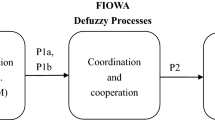Abstract
Virtual worlds are becoming prevalent and find application in a variety of fields. While technology enables us to build virtual worlds which look more realistic, the scenarios that we encounter in the virtual world is often not sufficiently close to real world. Hence, there is a need to develop a method that helps designers build a virtual world that not only looks real but also feels real. Such a method will help in the design of virtual environment using elements from the real world, which significantly improves the authenticity and user experience.
We demonstrate such a method and an example of designing virtual world through a case study. We use software project management as the context and serious games as the medium in our case. We begin with an ontology for capturing the real-world elements of our context (such as time, space, task, people etc.). We then conduct a user study to identify and extract elements from the ontology that would help in representing the real world authentically in the virtual world. Further, we design a virtual world game based on the extracted elements. Finally, we do a post hoc analysis on whether the virtual world that we built was sufficiently authentic.
This paper presents a literature review, method to design an “authentic” virtual world and an illustration of design through the case study of software project management game.
Access this chapter
Tax calculation will be finalised at checkout
Purchases are for personal use only
Similar content being viewed by others
References
Abels, S., Ahlemann, F., Hahn, A., Hausmann, K., Strickmann, J.: PROMONT – a project management ontology as a reference for virtual project organizations. In: Meersman, R., Tari, Z., Herrero, P. (eds.) OTM 2006. LNCS, vol. 4277, pp. 813–823. Springer, Heidelberg (2006). https://doi.org/10.1007/11915034_105
Alexander, A.L., et al.: From gaming to training: A review of studies on fidelity, immersion, presence, and buy-in and their effects on transfer in PC-based simulations and games. DARWARS Training Impact Group (2005)
Ambrose, S.A.: How Learning Works: Seven Research-Based Principles for Smart Teaching. Jossey-Bass, San Francisco (2010)
Barab, S.A., et al.: Grounded constructions and how technology can help. TechTrends. 43(2), 15–23 (1998)
Brenton, H., et al.: The uncanny valley: does it exist. In: 19th British HCI Group Annual Conference: Workshop on Human-Animated Character Interaction (2005)
Bronack, S., et al.: Designing virtual worlds to facilitate meaningful communication: issues, considerations, and lessons learned. Tech. Commun. 55(3), 261–269 (2008)
Calderón, A., Ruiz, M.: Bringing real-life practice in software project management training through a simulation-based serious game. In: Proceedings of the 6th International Conference on Computer Supported Education (2014)
Council, D.: The ‘double diamond’ design process model (2005)
Herrington, J., et al.: Immersive learning technologies: realism and online authentic learning. J. Comput High. Educ. 19(1), 80–99 (2007)
Lee, W.-L.: Spreadsheet based experiential learning environment for project management. In: Proceedings of the 2011 Winter Simulation Conference (WSC) (2011)
McCurdy, M., et al.: Breaking the fidelity barrier. In: Proceedings of the SIGCHI Conference on Human Factors in Computing Systems - CHI 06 (2006)
Mizoguchi, R., et al.: Task ontology for reuse of problem solving knowledge. In: Towards Very Large Knowledge Bases, pp. 46–59 (1995)
Rooney, P.: A theoretical framework for serious game design. Int. J. Game-Based Learn. 2(4), 41–60 (2012)
Sadabadi, A.T.: A decision support system for game-based simulative environment of software development project management. Int J. Mach. Learn. Comput. 2(2), 173–177 (2012)
Smith, P.E.: Simulating the classroom with media and computers: past efforts future possibilities. Simul. Gaming 18(3), 395–413 (1987)
Smith, P.: Instructional simulation: research, theory, and a case study (1986)
Tinwell, A., Grimshaw, M.: Bridging the uncanny. In: Proceedings of the 13th International MindTrek Conference: Everyday Life in the Ubiquitous Era on - MindTrek 2009 (2009)
Wages, R., Grünvogel, S.M., Grützmacher, B.: How realistic is realism? considerations on the aesthetics of computer games. In: Rauterberg, M. (ed.) ICEC 2004. LNCS, vol. 3166, pp. 216–225. Springer, Heidelberg (2004). https://doi.org/10.1007/978-3-540-28643-1_28
Westera, W., et al.: Serious games for higher education: a framework for reducing design complexity. J. Comput. Assist. Learn. 24(5), 420–432 (2008)
Zaltman, G., Coulter, R.H.: Seeing the voice of the consumer: metaphor-based advertising research. J. Advertising Res. 35(4), 35–51 (1995)
Author information
Authors and Affiliations
Corresponding author
Editor information
Editors and Affiliations
Rights and permissions
Copyright information
© 2018 Springer International Publishing AG, part of Springer Nature
About this paper
Cite this paper
Mohan, A., Arya, P., Athavale, S. (2018). Building Virtual World for a Project Management Game – A Case Study. In: Cheok, A., Inami, M., Romão, T. (eds) Advances in Computer Entertainment Technology. ACE 2017. Lecture Notes in Computer Science(), vol 10714. Springer, Cham. https://doi.org/10.1007/978-3-319-76270-8_51
Download citation
DOI: https://doi.org/10.1007/978-3-319-76270-8_51
Published:
Publisher Name: Springer, Cham
Print ISBN: 978-3-319-76269-2
Online ISBN: 978-3-319-76270-8
eBook Packages: Computer ScienceComputer Science (R0)




